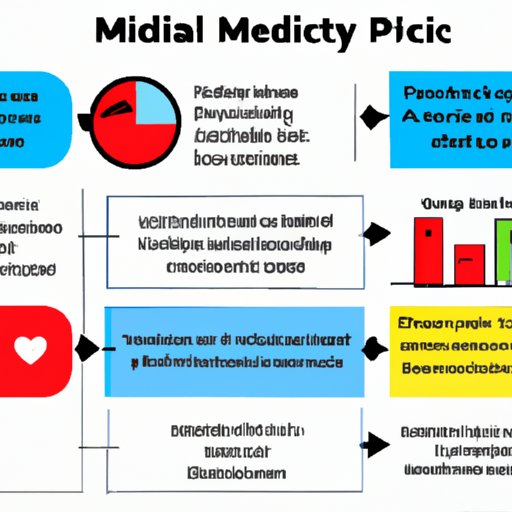Introduction
The music industry is a complex landscape that has been shaped by technological advancements over the last few decades. Technology has revolutionized not only how music is consumed but also how it is created and promoted. This article will explore how technology has changed the music industry in terms of streaming services, digital distribution platforms, social media, smartphone music apps, and new business models.

Exploring the Impact of Streaming Services on Music Sales
Streaming services such as Spotify, Apple Music, and Tidal have completely changed the way people listen to music. According to a survey conducted by the Recording Industry Association of America, streaming now accounts for more than 75% of total music consumption in the U.S., overtaking physical formats and digital downloads for the first time.
The impact of streaming services on music sales has been mixed. On the one hand, these services have made it easier for people to access music, leading to an increase in overall music consumption. On the other hand, they have had a negative impact on the revenue generated from music sales due to their subscription-based model, which pays artists much lower royalties compared to traditional album sales.
The pros and cons of streaming services for artists depend largely on their popularity. For established artists, streaming services can be a great way to reach a wider audience, while for lesser-known artists, streaming services may not generate enough revenue to support their careers.

Examining How Digital Distribution Platforms Have Revolutionized Music Production
Digital distribution platforms such as Bandcamp and CD Baby have revolutionized the way musicians produce and distribute their music. These platforms allow musicians to bypass traditional record labels and sell their music directly to consumers, giving them more control over the production process and allowing them to keep a larger share of the profits.
These digital distribution platforms also provide access to a global market, making it easier for musicians to reach fans around the world. They also enable musicians to track the performance of their music, providing valuable insights into what kind of music resonates with their audience.
However, there are still some challenges associated with digital distribution platforms. Musicians must still promote their music in order to reach potential fans, and navigating the complex legal landscape of music licensing can be difficult.

Analyzing the Rise of Social Media and Its Influence on Music Promotion
Social media has been a game-changer for the music industry. Platforms such as Facebook, Twitter, and Instagram have allowed musicians to connect directly with their fans, creating opportunities for engagement that were not previously possible.
Social media has also enabled musicians to reach a wider audience, as well as to target specific demographics. Additionally, it has helped to reduce marketing costs, as musicians can promote their music for free or at a low cost.
However, there are some drawbacks to using social media for music promotion. It can be difficult to stand out in a crowded digital space, and algorithms used by social media platforms often favor larger, more established artists.
Investigating the Benefits of Smartphone Music Apps for Musicians
Smartphone music apps such as Shazam, Pandora, and SoundCloud have opened up a new avenue for musicians to promote their music. These apps allow users to discover new music and follow their favorite artists, creating opportunities for artists to reach new fans.
Smartphone music apps also provide useful analytics to help musicians track the performance of their music. This data can be invaluable for understanding what kind of music resonates with listeners and for targeting potential fans.
However, there are some challenges associated with smartphone music apps. They often require payment to unlock certain features, and they also have to compete with other apps for user attention.
Looking at How Technology Has Enabled New Business Models in the Music Industry
Technology has enabled new business models in the music industry, such as subscription-based streaming services and crowdfunding platforms. These models have been beneficial for both musicians and consumers, as they allow musicians to make a living from their music while also giving fans more control over how they access and consume music.
However, these new business models also come with their own set of challenges. Artists must be mindful of the revenue split between them and the platform, and they must also be aware of the complexities of copyright law when releasing their music.
Conclusion
In conclusion, technology has had a significant impact on the music industry. Streaming services have changed the way people listen to music, digital distribution platforms have revolutionized music production, social media has transformed music promotion, smartphone music apps have opened up new avenues for discovery, and technology-enabled business models have provided new opportunities for musicians. While there are still challenges to overcome, it is clear that technology has enabled a more vibrant and diverse music industry.
(Note: Is this article not meeting your expectations? Do you have knowledge or insights to share? Unlock new opportunities and expand your reach by joining our authors team. Click Registration to join us and share your expertise with our readers.)
